Visiting Croatia’s abandoned Penthouse hotel on the Adriatic Coast
In 1968, work commenced on a new luxury hotel on the large Croatian island of Krk in the Adriatic Sea. Designed by renowned Croatian architect, Boris Magaš, who a few years later would go on to design the multi-use Poljud Stadium near Split, the intention was to create a resort hotel to capitalise on Marshall Tito’s desire to attract wealthy people from the west to spend money in what was then Yugoslavia. The concept of the Haludovo Palace Hotel, as it was called, was attractive to the Sicilian-American, Bob Guccione, who saw the potential of adding a casino. Guccione, the founder and owner of the men’s magazine, Penthouse, a competitor to Hugh Heffner’s Playboy magazine, invested $45 million in the venture (equivalent to $281 million in 2020) and the result was that in mid-1972, when the Haludovo Palace Hotel was officially opened, it contained within it the Penthouse Adriatic Club Casino, populated by fifty scantily-dressed Penthouse Pet hostesses whose job it was to ensure the well-being of the guests by plying them with food and drink and providing eye candy. One year later, the casino part of the hotel was declared bankrupt and closed down.
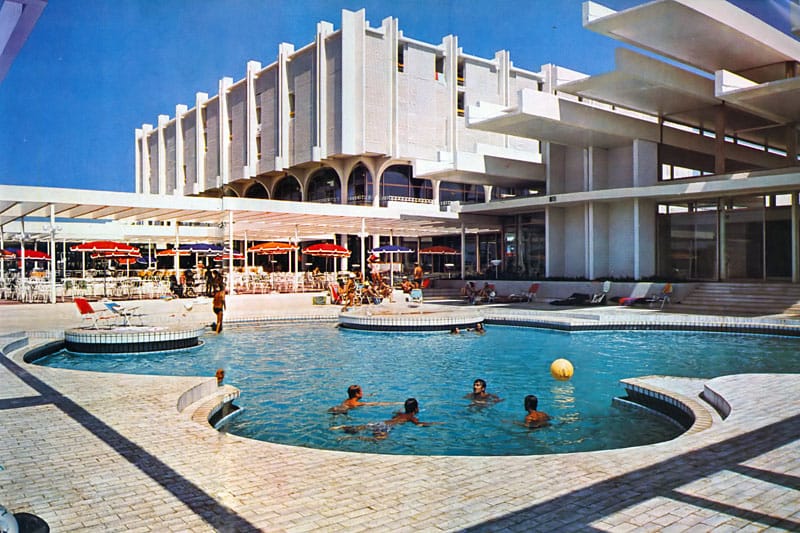
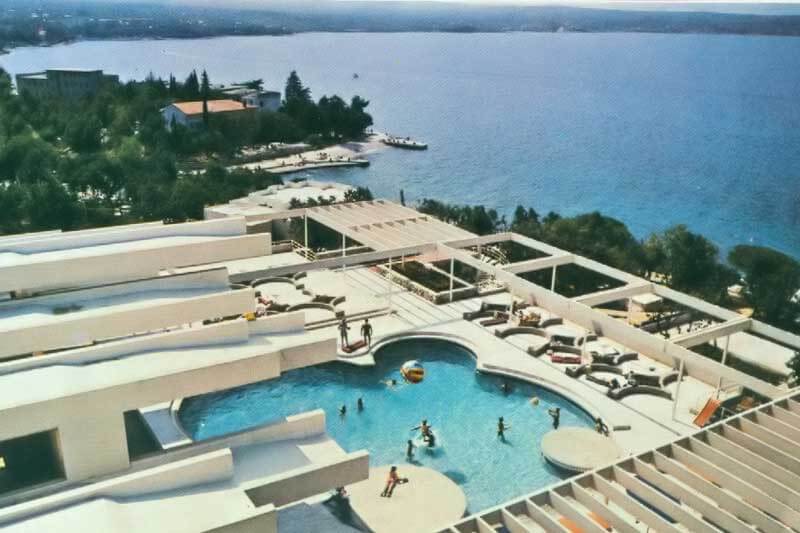
Above and below are some photographs of the hotel and casino taken during its 1972-73 heyday. These photos (along with the magazine covers featured) appear on several websites containing longer discussions about the hotel but nowhere can I find anything about the copyright owner of the images. If you know who holds the copyright, please let me know and I will act accordingly.
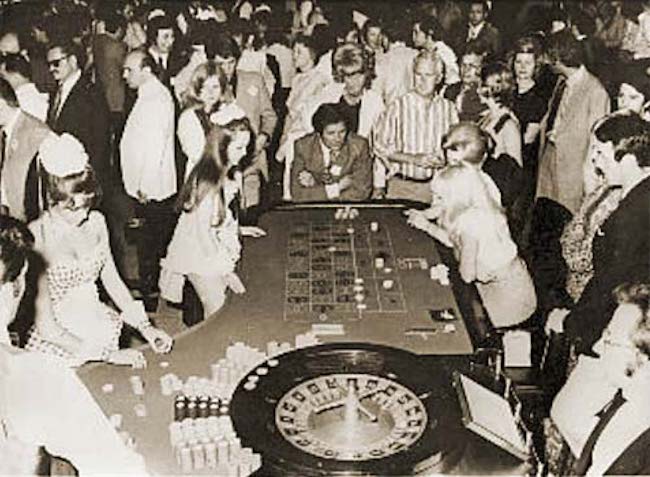
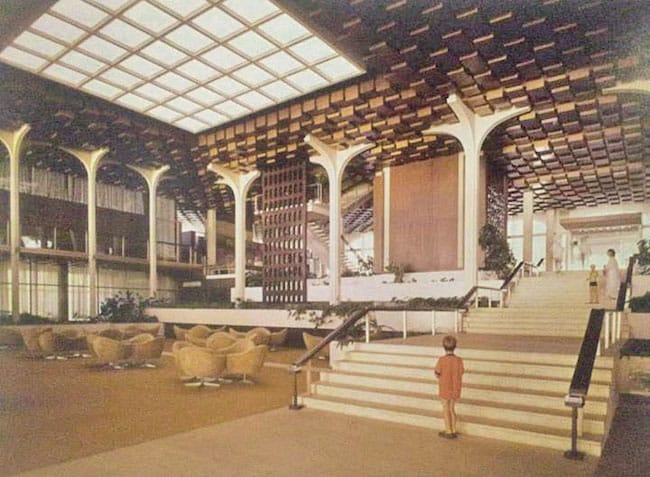
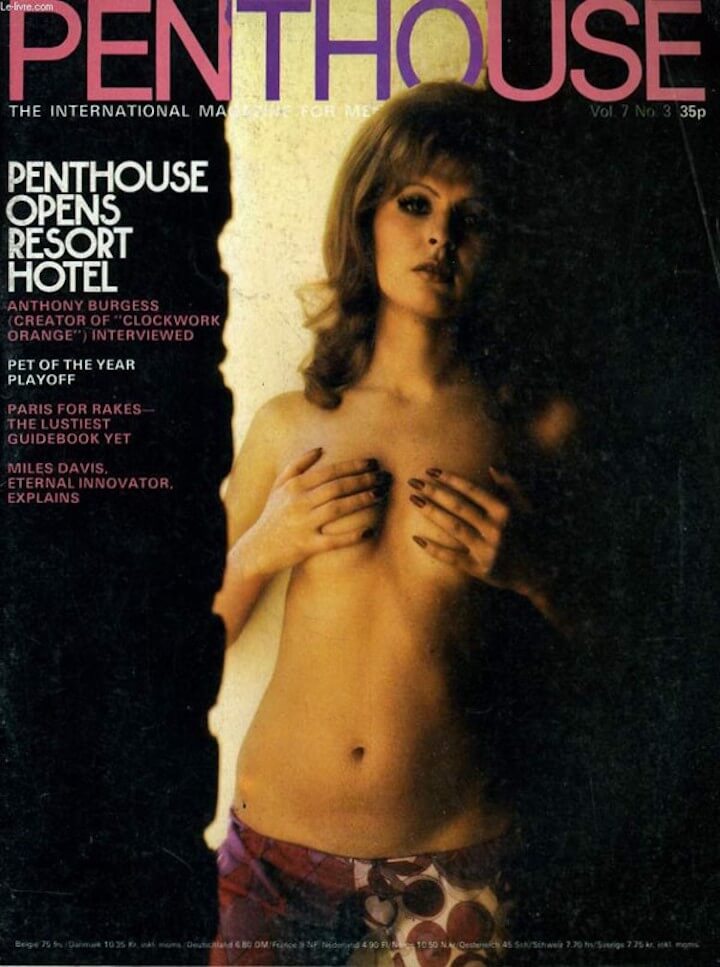
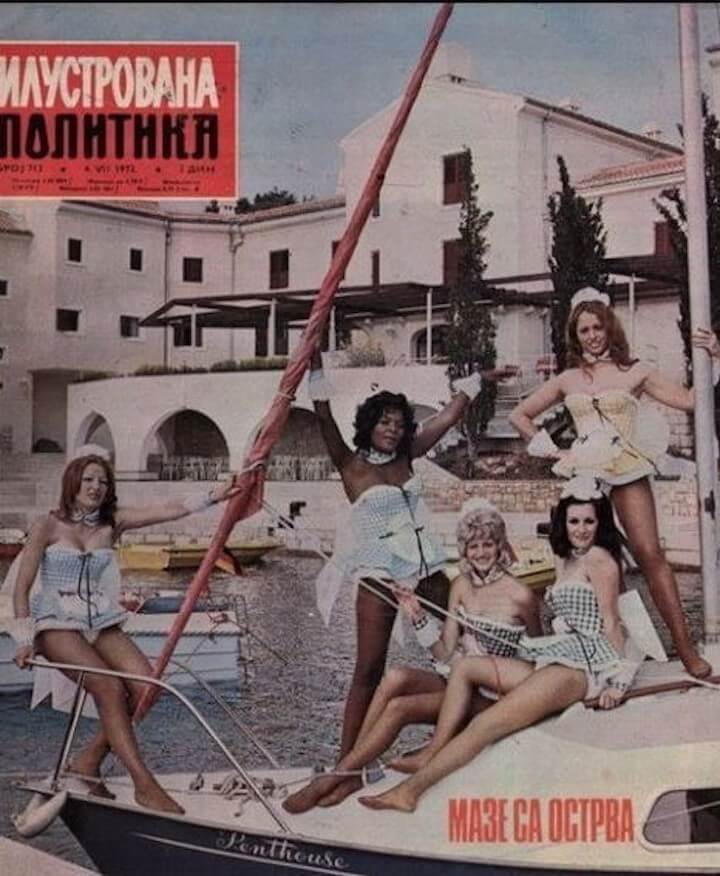
So, what went wrong?
Initially, the casino was a success in attracting world leaders and celebrities such as the then-Swedish Prime Minister, Olof Palme, the Italian media tycoon (and future Prime Minister), Silvio Berlusconi, and rising Iraqi politician, Saddam Hussain. But, what Guccione had failed to factor into his plans for the casino was the fact that Yugoslavian law, modelled on the principles of socialism, forbade any Yugoslavian national from gambling in casinos. Hence, only wealthy non-Yugoslavians could hit the tables and, quite simply, not enough such people came to the casino to make it profitable. Even the lure of the Pets, promoted by Guccione as ‘New soldiers of the Cold War’, and the lavish amounts of champagne, caviar and lobster were not enough.
Under another Yugoslavian socialist ownership law, the casino was officially owned by a Croatian worker-members assembly company called Brodokomerc. Guccione’s return on investment was based on a contract with Brodokomerc that stated he would receive ‘three to seven per cent annually from the whole turnover of the Haludovo hotels: in the first three years three per cent and in all other years seven per cent.’ In the event, he received nothing and the loss of his $45 million was a contributory factor to his subsequent bankruptcy in 2004.
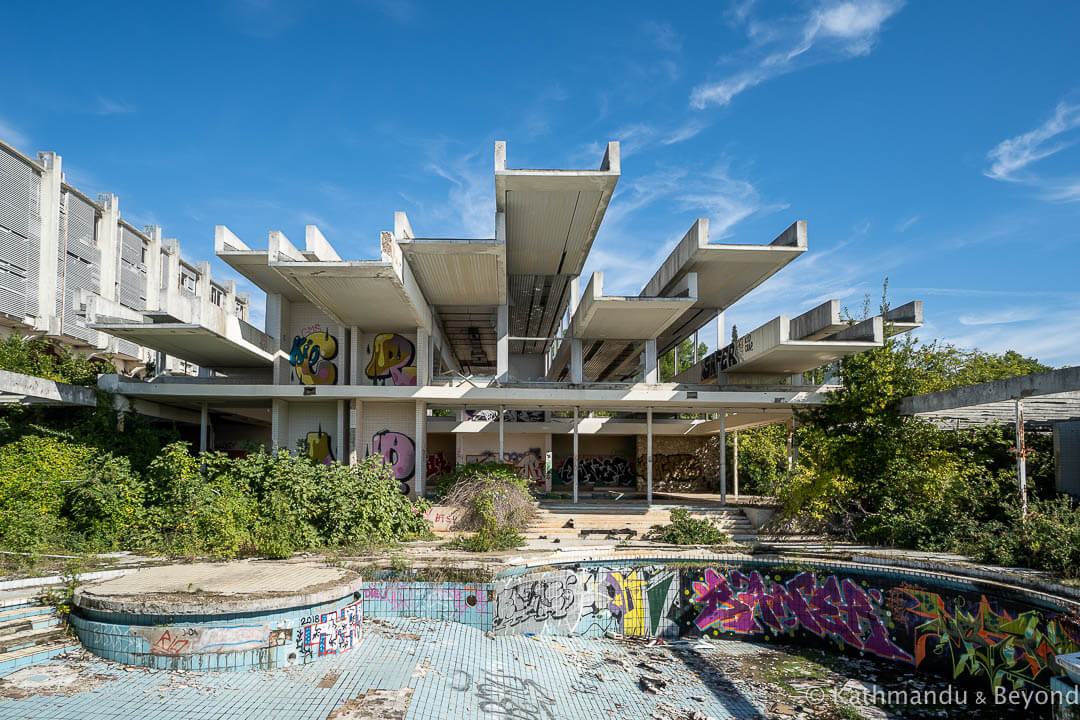
Following the casino’s closure, the Haludovu Palace Hotel continued as a luxury hotel until the start of the Balkan wars in 1991 after which it became a shelter for refugees. Gone was the caviar, lobster and champagne. In came the poor, the wounded, and those fleeing from the vicissitudes of war and by the time Croatia finally declared independence in 1995, the hotel was a pale shadow of its former opulence. In addition, many of those who took up residence between 1991 and 1995 were, understandably, reluctant to leave. But after causing some damage, leave they did and, for a few more years, the hotel continued as a resort hotel finally closing its doors to guests in December 2002. Since then, ownership of the hotel has followed a chequered and oft-times shady path with deals that didn’t come off or promises of investment money that never materialised.
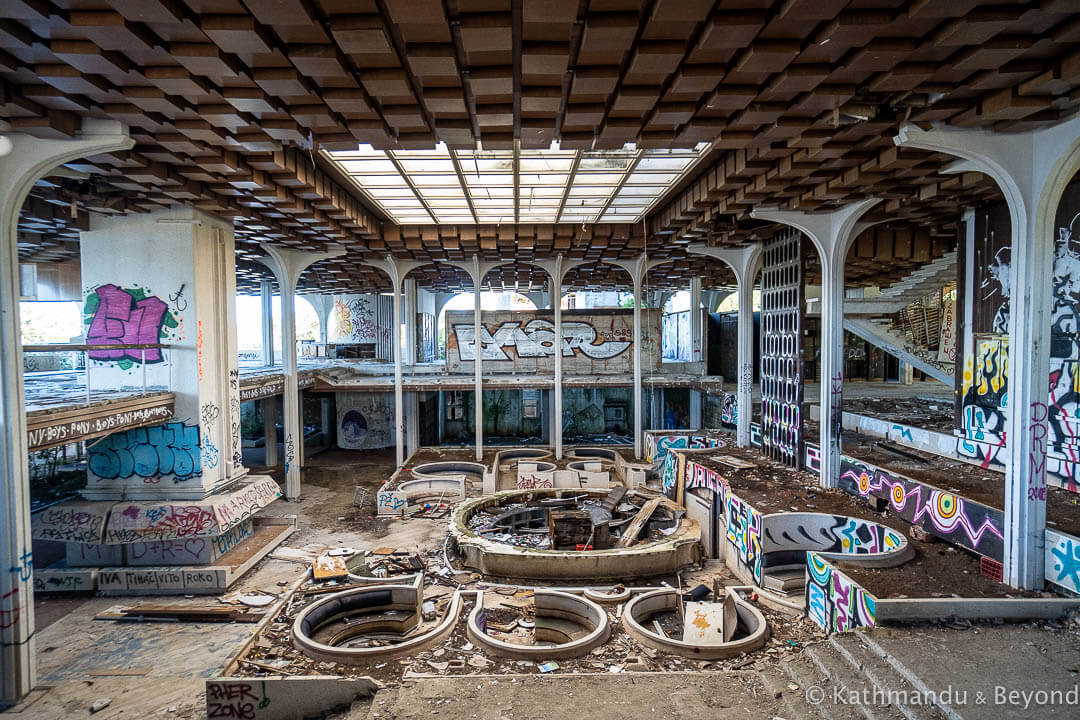
Right now, what was a Croatian jewel in the crown is owned by the British shell company, Bitmass Limited which, through another company, has links with Ara Abramyan, an Armenian-Russian businessman who, at one time, was a majority owner of the hotel and the land it stood on. The future of the hotel is ill-defined. It stands derelict and unsafe in a prime position overlooking the Adriatic Sea and one doubts it will ever be restored to at least a habitable state.
Our visit to Haludovo Palace Hotel on Krk Island
The first thing we noticed about Haludovo Palace Hotel is that it is well camouflaged. Approaching it via the narrow promenade that separates the hotel from the sea, you probably wouldn’t know it was there unless you were on the lookout. The entire beachfront side of the hotel is engulfed by large trees and other overgrown foliage and it was a strange sensation, having just entered the grounds of the hotel via this route, to peer back through the greenery at passing holidaymakers as they strolled along this attractive bit of coastline, unaware of the hotel’s existence.
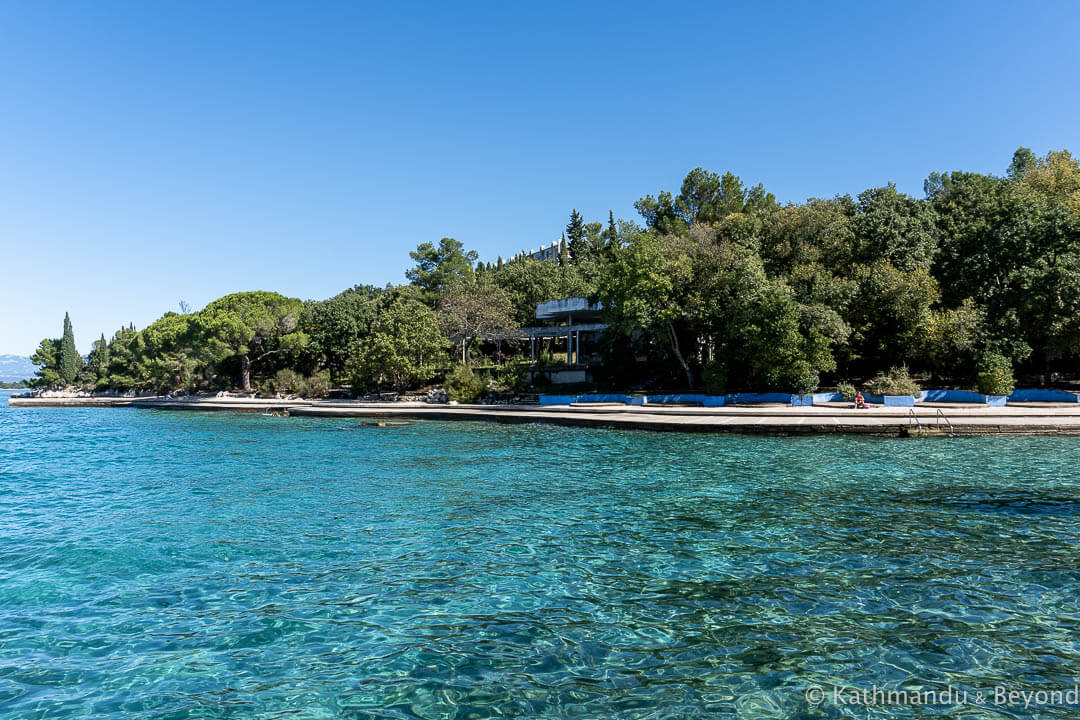
Following a path past various shells of villas and other outlying buildings, we reached the main body of the hotel, which was divided into two distinctive parts – the open-plan lobby with hotel rooms above it to our right and, the highly-recognisable swimming pool/entertainment area to the left. We opted for the foyer first, which, although a mess and ravaged within an inch of its life, still bore similarities with the archive photos we had been looking at a few days earlier. It’s not the first time that the “pah-pah-pah-paaah pah-pah-pah-paaah” of Pearl & Dean’s cinema music (*) has popped unexpectedly into my head and, as I stood there taking in what was left of the retro-ness of it all, I couldn’t help but think that I should’ve grown a ‘70s ‘tash for the occasion …
(*) Read our post about the Retro Museum in Varna to remotely fathom what I’m babbling on about.
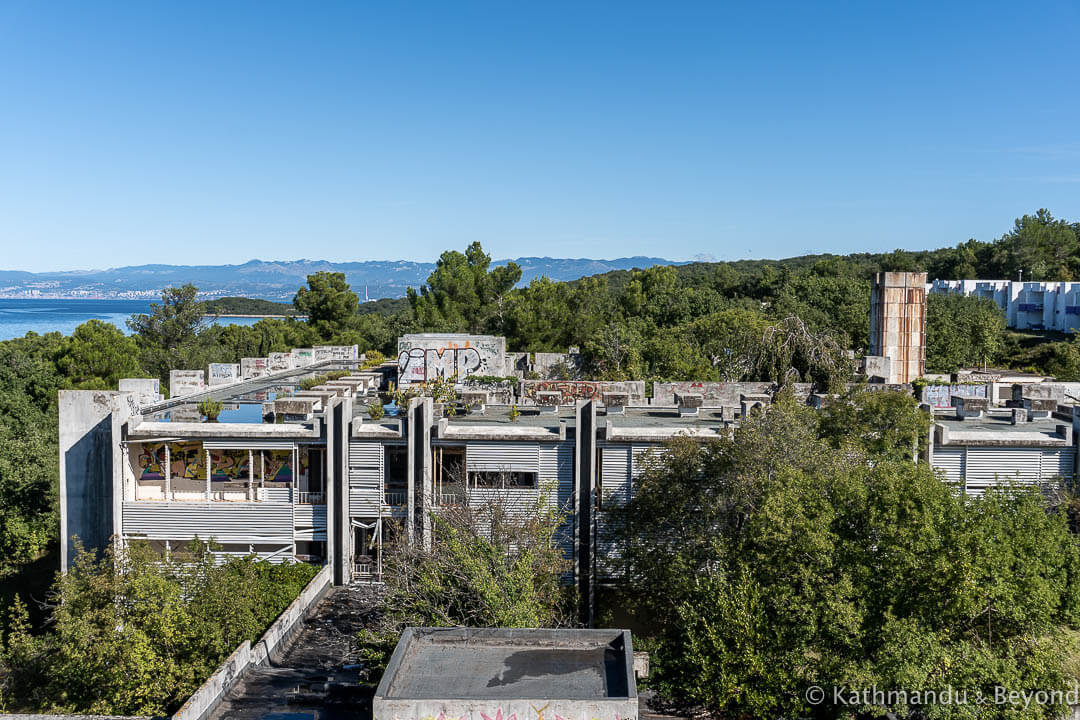
Upstairs was in an even worse condition than downstairs. There was nothing left in any of the rooms and a high percentage of the corridors were sodden with water that was coming from somewhere, although we couldn’t pinpoint exactly where. The view across to other parts of the hotel, and beyond to the attractive bay, was the most interesting aspect of the upper floors and we didn’t linger for too long.
Let’s face it, anyone who wants to visit the Haludovo Palace probably wants to do so because they have been seduced by the magnificent brutalist modern facade that overhangs the property’s outdoor swimming pool (seen in the photo above). This was certainly the reason the hotel was on our radar screen and after spending time exploring the interior, we made our way via the indoor pool and bar area outside to gaze upon this exceptional example of mid-century architectural splendour. We even went back for a second visit later in the day because the sun was not in the right place in the morning for decent photography. Luckily, Krk is a stunning island and worth visiting for non-urbexing activities so filling the time was easy.
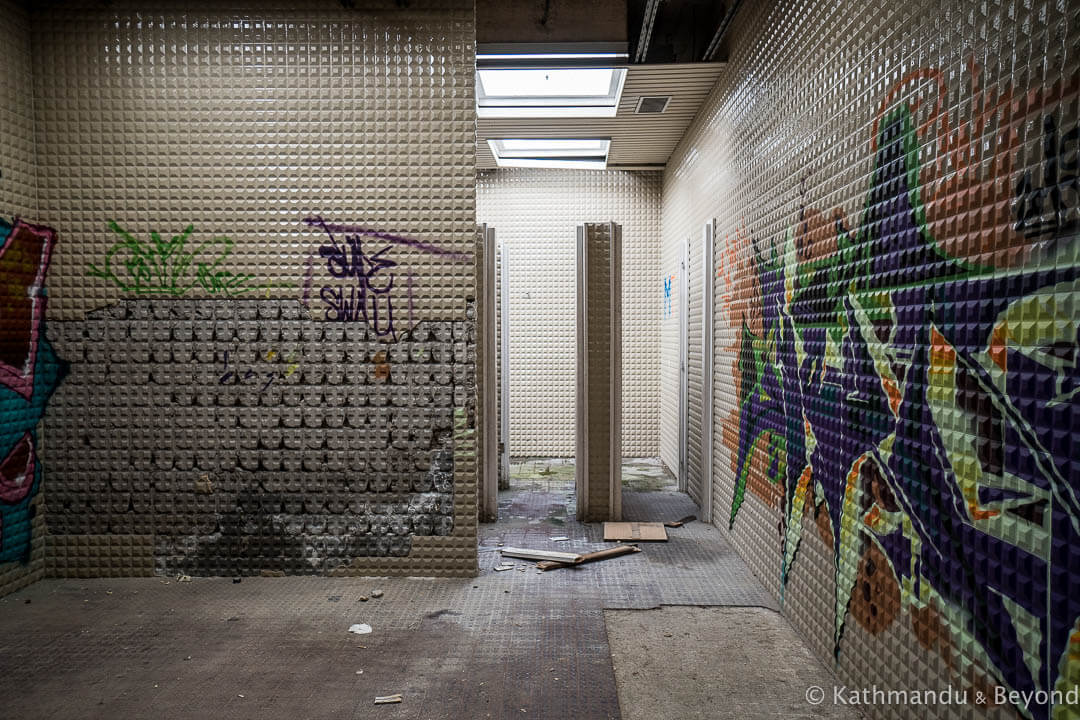
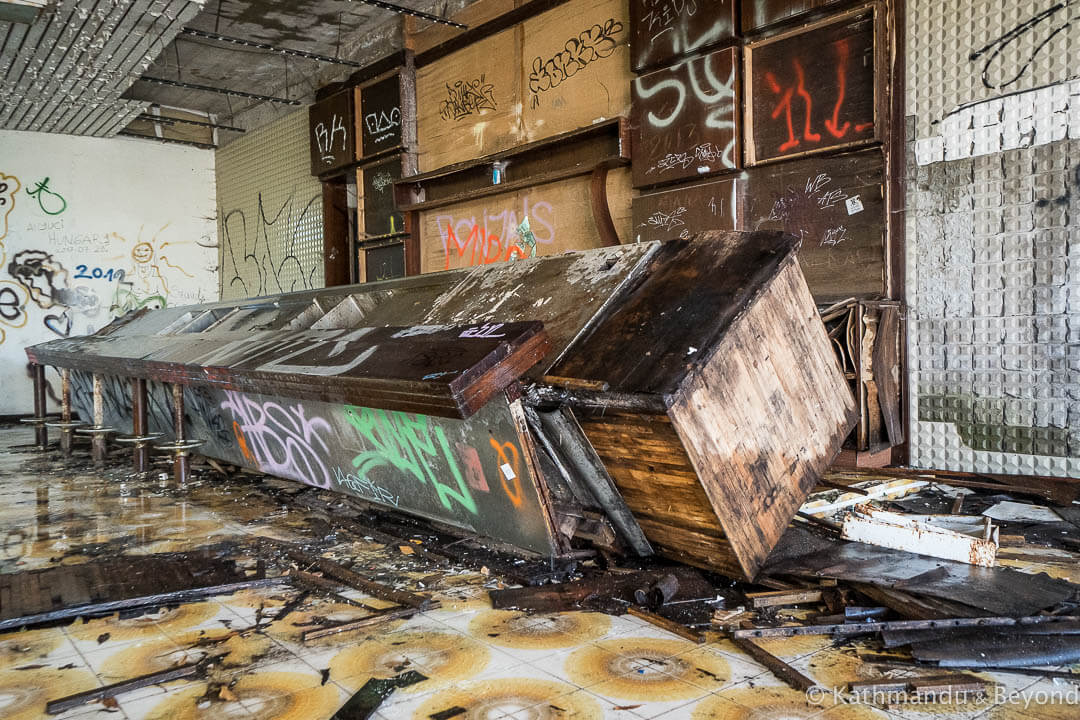
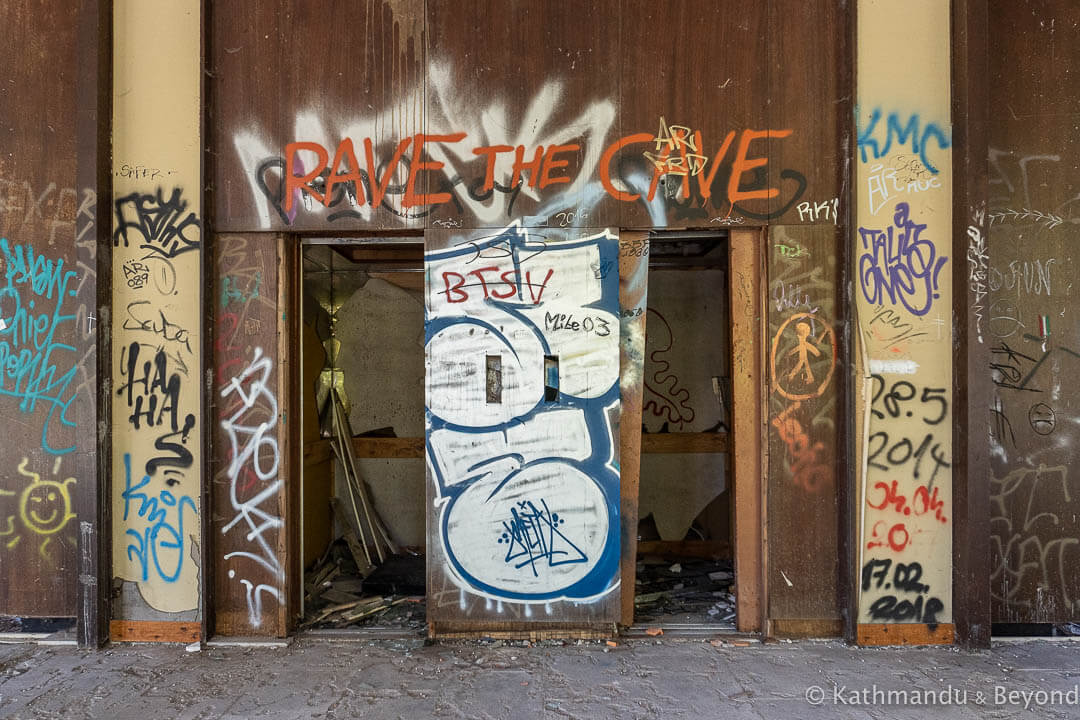
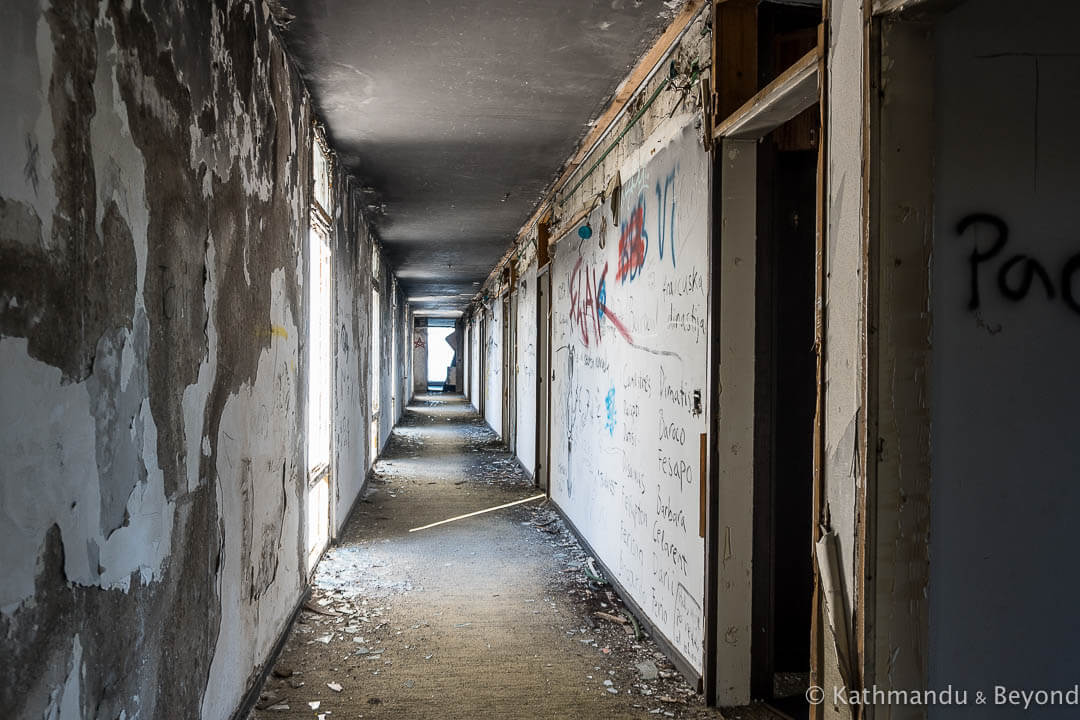
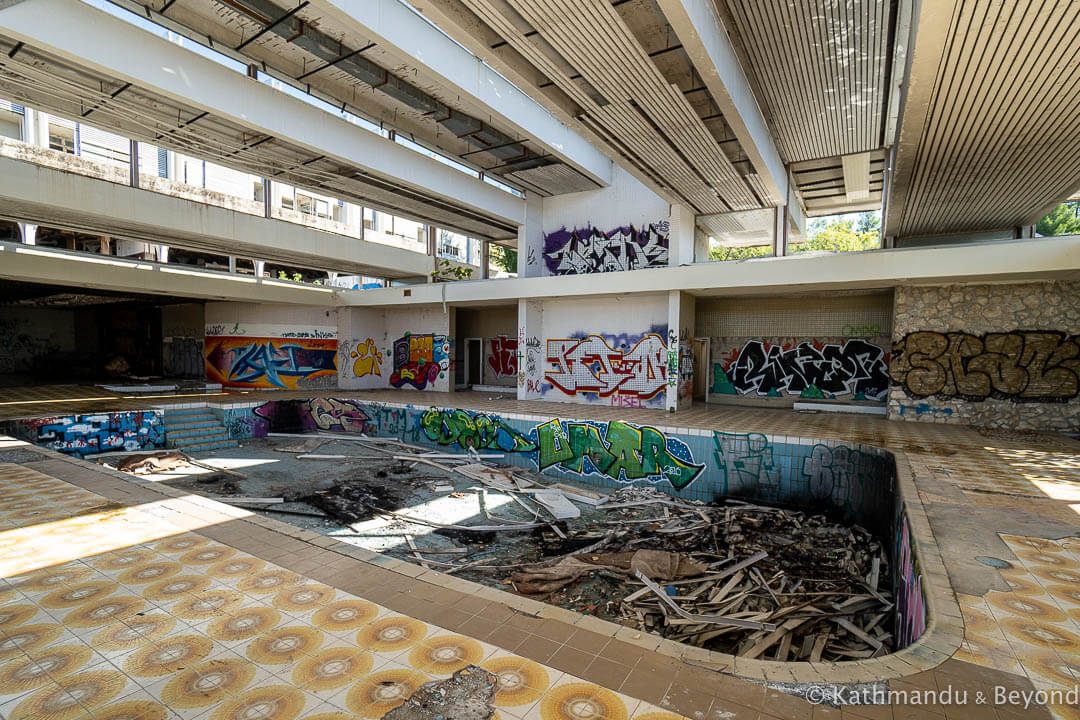
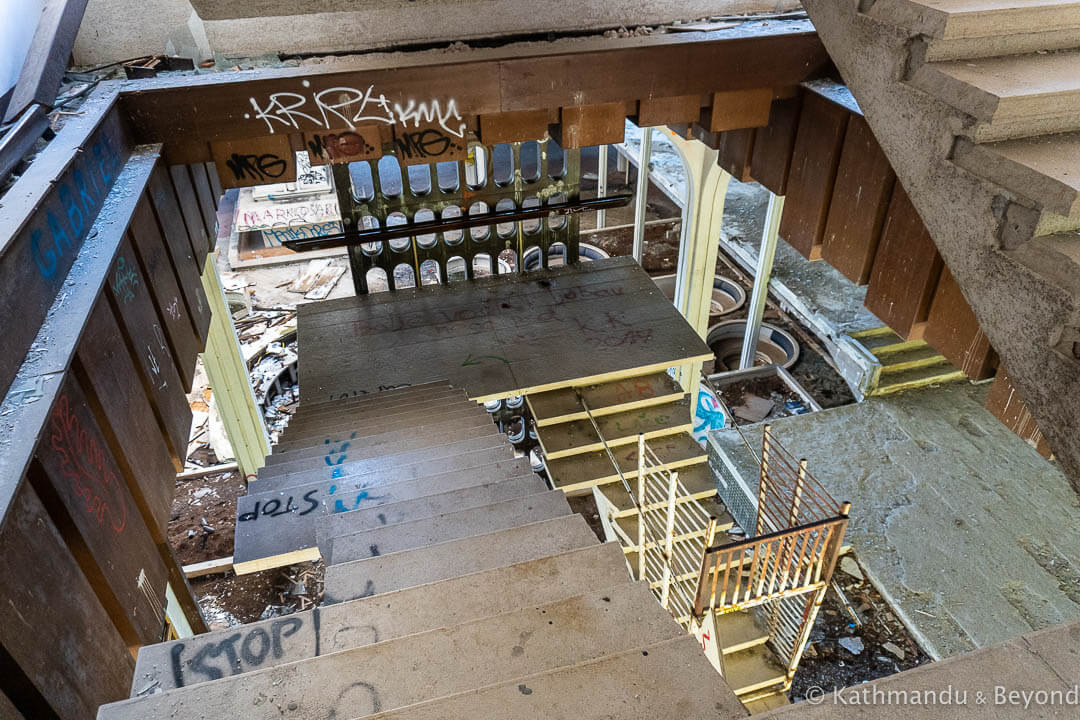
Locating Haludovo Palace Hotel on Krk Island
Haludovo Palace Hotel may be tricky to spot but it is not difficult to find. Near the small tourist town of Malinska, on Krk’s northwest coast, the resort is listed on Google Maps and there are still signposts pointing you in the right direction on the approach to it. The GPS coordinates are 45.131015, 14.528320.
We encountered no issues entering either the grounds or the buildings attached to the property. We visited Haludovo Palace Hotel in October 2019.
And finally …
There is an entertaining 1972 BBC interview with Guccione in which he talks about his vision for the casino just before its opening while surrounded by eye-catching Pets in various stages of undress. Doubtless deemed sexist these days, I prefer to look on it as historical content. It is, after all, on the BBC!
You can view the 9-minute interview on the BBC Archive on Facebook.
READ MORE CROATIA BLOG POSTS
SEE MORE OF OUR POSTS FEATURING ABANDONED PLACES
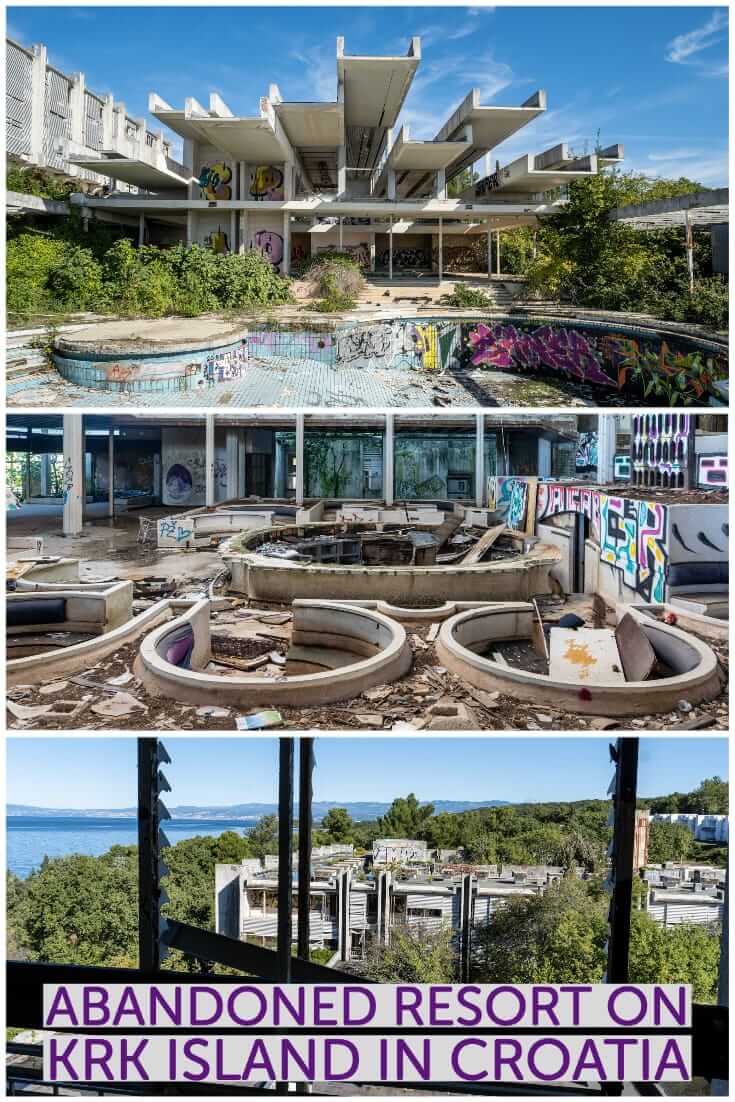
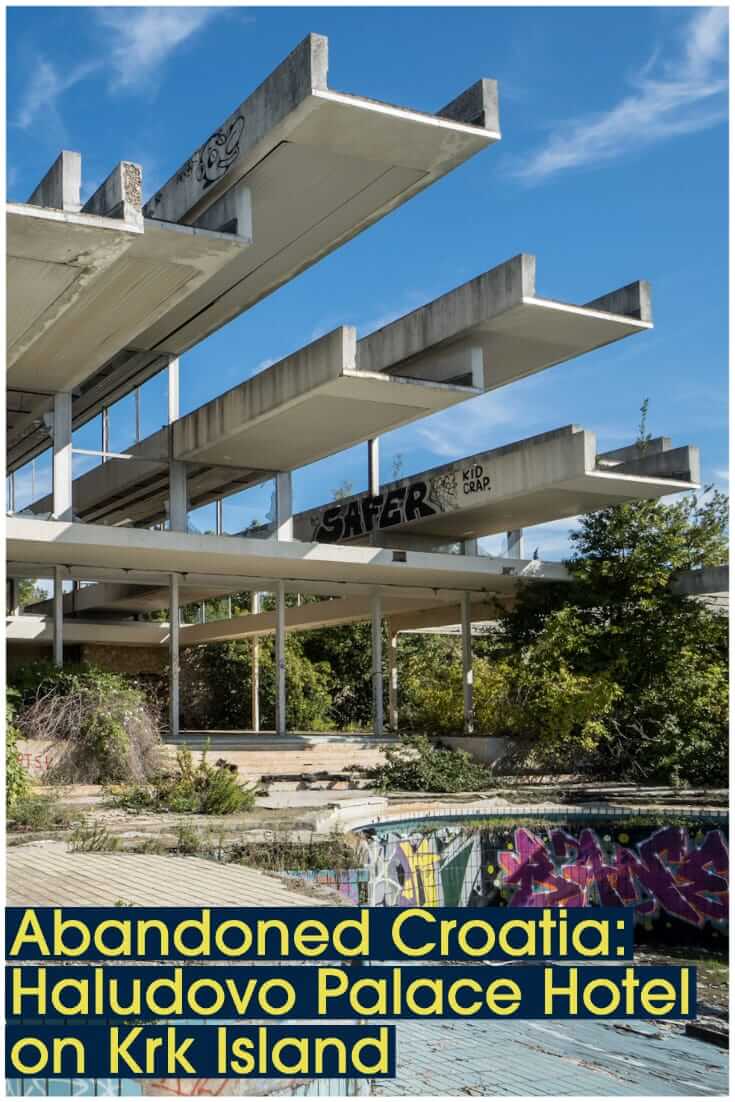
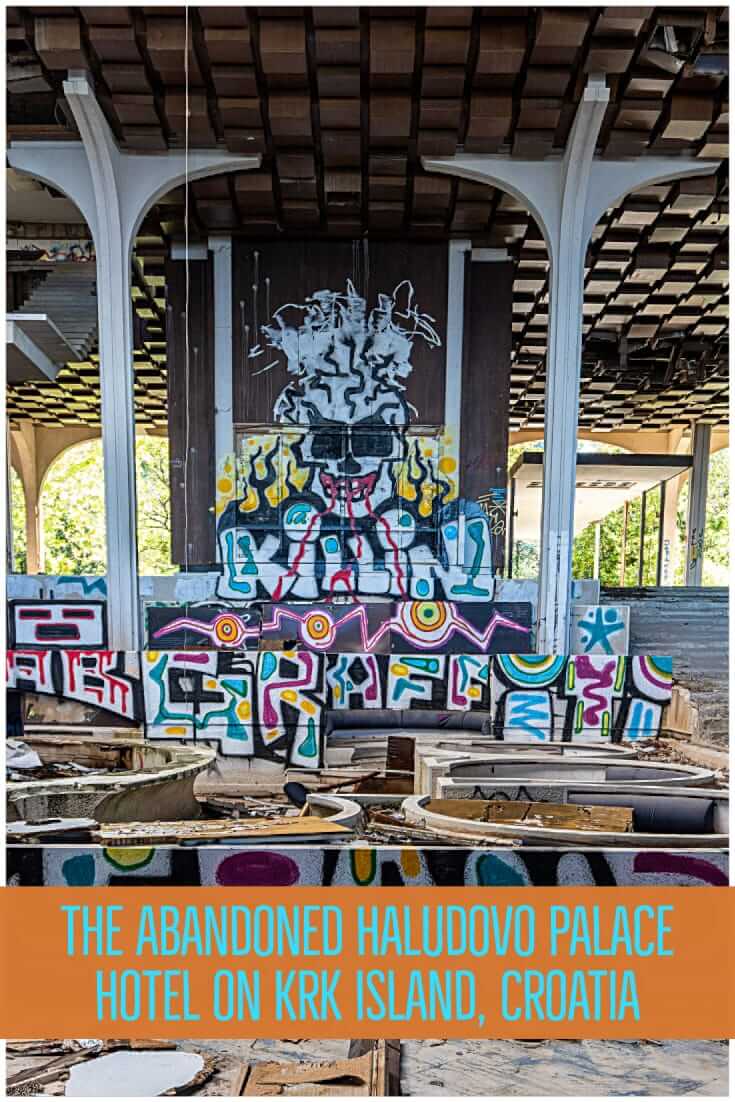

Love place